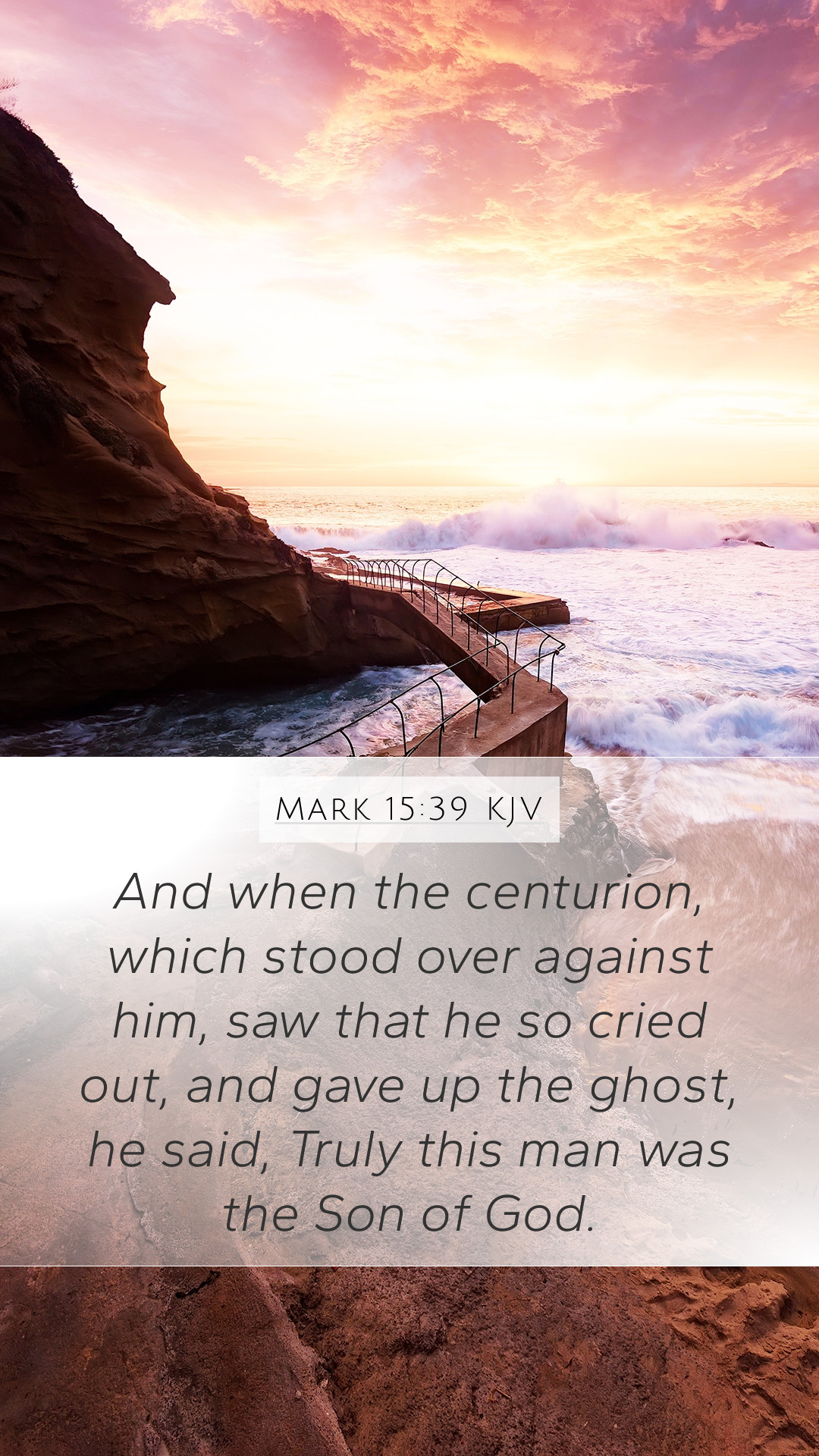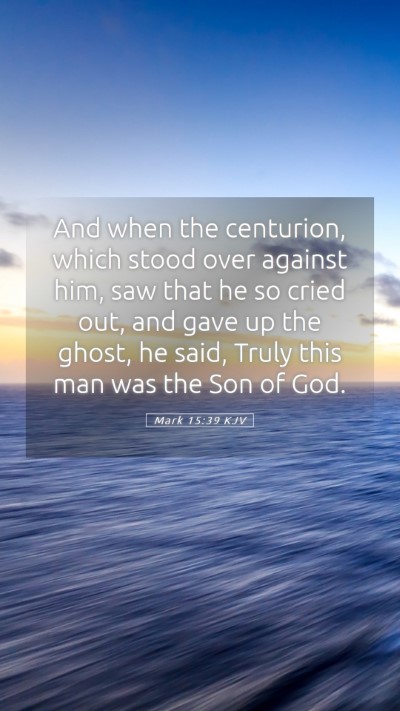Bible Verse Meanings: Mark 15:39 Explained
Mark 15:39 presents a profound moment of revelation and insight following the death of Jesus. The verse states,
"And when the centurion, who stood opposite Him, saw that He cried out like this and breathed His last,
he said, 'Truly this Man was the Son of God!' This declaration by the Roman centurion is significant on multiple levels.
Below, we will explore the interpretations and meanings derived from various public domain commentaries.
Understanding the Context
The context of Mark 15:39 is pivotal for proper Bible verse understanding. It occurs at the crucifixion of Jesus,
where the centurion is a witness to the events surrounding Jesus' death. The centurion was accustomed to observing
deaths but recognized something extraordinary in Jesus' final moments.
Commentary Insights
- Matthew Henry's Commentary:
Henry remarks that the centurion’s confession was a significant act of faith, coming from a Gentile
who had previously been part of the execution process. This highlights the universal nature of Christ's
mission, suggesting that even those who initially opposed Him could recognize His divine identity.
- Albert Barnes' Notes:
Barnes emphasizes the centurion’s authority and how his declaration carried weight. He suggests that
this acknowledgment from a soldier who typically represents the oppressive Roman rule accentuated the
miracle of Jesus' impact. It serves as testament to the person and work of Christ, fulfilling prophecy
and revealing God’s plan of salvation.
- Adam Clarke's Commentary:
Clarke elaborates on the significance of the centurion’s statement, interpreting it as a turning point
in the recognition of Jesus’ divinity. Clarke notes that the phrase "Son of God" implies a deeper
understanding of Jesus’ nature, hinting at His role as Messiah beyond the immediate events of the
crucifixion.
Theological Significance
The declaration by the centurion affirms several theological concepts:
- **Recognition of Jesus’ Divine Identity:** The centurion's statement signifies the acknowledgment of Jesus as
the Son of God, fulfilling His role in redemptive history.
- **God's Salvation for All:** The fact that a Roman soldier—considered an outsider—proclaimed Jesus’
sonship illustrates the inclusive nature of the Gospel, extending God's grace to all nations.
- **Fulfillment of Prophecy:** This moment can be seen as fulfillment of Old Testament prophecies regarding
the recognition of the Messiah by diverse peoples.
Application of the Verse
Understanding Mark 15:39 offers valuable lessons for today's believers. It encourages individuals to reflect on
their own recognition of Jesus’ identity as the Son of God and consider how they proclaim this in their lives.
The encounter also emphasizes humility and openness to revelation, as even those who initially reject or oppose
the faith may experience profound change in understanding.
Cross References
- Matthew 27:54 - The centurion at the crucifixion declaring the truth of Jesus’ identity.
- Luke 23:47 - A parallel account of the centurion's acknowledgment of Jesus' righteousness.
- Isaiah 53:5 - Prophecy about Jesus’ suffering and its significance in salvation.
Conclusion
In conclusion, Mark 15:39 serves as a powerful moment of recognition that resonates with deep implications for
Bible study insights. The statement of the centurion not only reveals the identity of Jesus as the Son of God
but also calls all readers to reflect on their spiritual journeys and the nature of their faith. This verse is a
testament to the transformative power of Jesus’ sacrifice and how it transcends cultural and historical boundaries.


